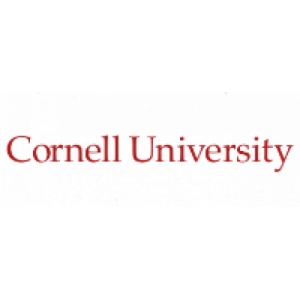Geospatial Science for Sustainable Land Processes and Management
Cornell University-
Job Type
Full Time -
Experience
2-4 year -
Salary
$79,400 - $135,000 / Year -
Location
Ithaca, NY, USA -
Job Function
-
Industry
Information Technology -
Qualification
Key Skills
Job Description
The CALS Roadmap to 2050 identified Transdisciplinary Moonshots - opportunities for the CALS community to collaborate on future-focused, cross-disciplinary scientific breakthroughs and to align research, education, and extension programs for greater impact and stronger connectivity. The Moonshot areas build upon core strengths in CALS, spanning the agricultural, life, environmental and social sciences, with the goal of recruiting 27 faculty into the college over the next three years. This hiring cohort will advance the CALS Transdisciplinary Moonshot in Creating a Climate Resilient Future.
Research in the cohort will unite existing transdisciplinary strengths at Cornell with critical new competencies to help navigate transitions to climate-resilient futures in three interdependent domains: renewable energy, sustainable cities, and agri-food systems. The ideal candidate will be a biophysical scientist adept at geo-spatial assessment of natural and managed landscapes. In addition to this advertised hire, the cohort will include an environmental engineer, a socioecologist, a risk communication scholar, and a landscape architect.
We are looking for a highly collaborative individual who is experienced in quantification and prediction of land-surface processes as influenced by climate, land use and management, and policy essential to addressing multiple grand challenges for sustainability. The incumbent will serve as a critical resource and collaborator for faculty programs across soil science, crop science, horticulture, plant biology, breeding, and pathology, international agriculture, global development, and urban land management that include spatial processes from field to global scales. Understanding and controlling micro- and macro-level processes, ranging from soil and the microbiome to regional nutrient, water, and carbon flows, require spatial analysis that draws increasingly on integrating advanced sensing technologies, geographic information systems, and ‘big data’ approaches. The position requires expertise in land processes and management, soil and crop science, and biogeochemistry, in combination with strong geospatial and computational approaches, as well as data science for working with large data sets. The successful candidate will have the ability and interest in applying these techniques to problem solving in land processes and management and its interactions with water and air qualities. The incumbent will play a central role in the campus-wide geospatial sciences community and digital agriculture initiative, exemplified in the activities of the Cornell Institute for Digital Agriculture (CIDA). They will develop an innovative and cutting-edge research program with global reach that may operate with a regional or international focus, as well as a strong and innovative teaching program involving undergraduate and graduate courses in geospatial and related data sciences. Outstanding research scholarship is expected, as is excellence in, and commitment to, teaching, translation of knowledge, and advising and mentoring of students. We seek a colleague with an outstanding record demonstrating success and promise across these areas, and who will be supported by, and contribute to, a vibrant culture of inclusive excellence in SIPS. As such, candidates are expected to engage in service and leadership activities within their section and school, the college and university, as well as relevant professional societies.
Responsibilities:
This position has an effort split of 60% research and 40% teaching.
Research (60%) – The successful candidate will develop an externally-funded research program that applies advanced geospatial data science and computational methods including, but not limited to process-based modeling, artificial intelligence, and sensing technologies, to better understand processes and guide land management from local to regional and global scales.
Teaching (40%) - The successful candidate will teach an undergraduate class in geospatial science (e.g., Geographic Information Science; Spatial Modeling or related courses) and one advanced graduate level class in the area of specialization. The candidate is expected to provide leadership in degree programs related to geospatial science such as the newly established MPS degree in Geospatial Applications. We also expect the candidate to provide excellence in teaching a broad group of undergraduate students from across Cornell University.
Department Affiliation: The successful candidate will be a tenure-line faculty member of the Cornell University College of Agriculture and Life Sciences and will be based in the School of Integrative Plant Science with the option to join any of the 5 sections of SIPS as the primary affiliation and tenure home.
Qualifications: The successful candidate will have a Ph.D. in geospatial sciences or related sciences with an understanding of land processes through soil science, plant science, agronomy, or hydrological processes, and experience in applying this expertise to natural and managed landscapes. A strong commitment to the development of multidisciplinary team-based research and teaching is essential.
Company Info.
Cornell UniversityCornell University is a private Ivy League and statutory land-grant research university based in Ithaca, New York.
-
IndustryEducation
-
No. of Employees3,108
-
LocationIthaca, NY, USA
-
Website
-
Jobs Posted
Get Similar Jobs In Your Inbox
Cornell University is currently hiring Data Scientist, Geospatial Jobs in Ithaca, NY, USA with average base salary of $79,400 - $135,000 / Year.
Similar Jobs View More
Research Associate, BirdNet Ecology Lead - Lab of Ornithology
Cornell UniversityIthaca, NY, USA
0-2 year
